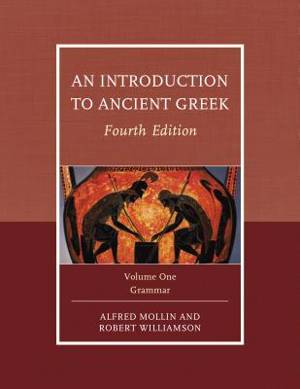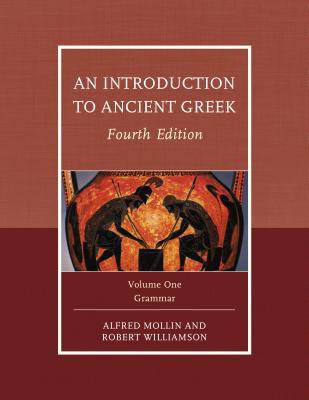
Wil je zeker zijn dat je cadeautjes op tijd onder de kerstboom liggen? Onze winkels ontvangen jou met open armen. Nu met extra openingsuren op zondag!
- Afhalen na 1 uur in een winkel met voorraad
- Gratis thuislevering in België vanaf € 30
- Ruim aanbod met 7 miljoen producten
Wil je zeker zijn dat je cadeautjes op tijd onder de kerstboom liggen? Onze winkels ontvangen jou met open armen. Nu met extra openingsuren op zondag!
- Afhalen na 1 uur in een winkel met voorraad
- Gratis thuislevering in België vanaf € 30
- Ruim aanbod met 7 miljoen producten
Zoeken
Omschrijving
This textbook was conceived and written under the authors' conviction that the feature of Greek grammar that lends itself most readily to understanding and discussion is syntax, especially the syntax of the verb and that such understanding has been unnecessarily complicated by the traditional use of a terminology derived more from the study of the Latin verb than the Greek. The principal feature of the Greek verb is no longer presented as that of "tense," a term that conflates and confuses questions of the time of an action relative to the act of speaking with ways of representing an action in itself. Rather, emphasis is placed on the latter feature, the aspect of a verb, both as a means of organizing the many forms that the verb can take and as a means of making comparatively simple sense of the multiplicity of syntactical rules that govern its use. Volume One features twenty Lessons presenting basic Greek Grammar in a manner facilitating the early introduction of substantial and philosophically rich passages from Heraclitus Aeschylus, Xenophon, Aristotle, Euclid and especially Plato, each containing vocabulary, discussion and exercises to aid in retention and reinforcement. Volume Two contains extended readings, with grammatical and vocabulary notes, from Plato and Aristotle, including the complete dialogue Meno, as well as Appendices and comprehensive Vocabulary lists. The two most distinctive Lessons in the text occur close to the beginning. Lesson Four presents the six features that determine any Greek verb--aspect (progressive, aorist or simple, perfect), "tense" (past, present, future), mood, voice, person, number)--through a discussion that is carried out mostly in English. At the end of the lesson, students are in possession of all the conceptual elements upon which the syntax of the Greek verb is based. Lesson Five presents the Progressive System of the regular verb in all of its moods and voices. The burden of paradigms on the memory is lightened by means of an emphasis on analysis into a verb's formative elements and through the use of linguistic rules that show how seemingly diverse forms arise from common origins. This early presentation of the non-indicative moods allows the student to appreciate the verb as a conveyer, not only of facts, but of the speaker's doubts, wishes, speculations and feelings as well.
Specificaties
Betrokkenen
- Auteur(s):
- Uitgeverij:
Inhoud
- Aantal bladzijden:
- 538
- Taal:
- Engels
- Reeks:
Eigenschappen
- Productcode (EAN):
- 9780761869542
- Verschijningsdatum:
- 31/07/2017
- Uitvoering:
- Boek
- Afmetingen:
- 218 mm x 281 mm
- Gewicht:
- 1533 g

Alleen bij Standaard Boekhandel
+ 176 punten op je klantenkaart van Standaard Boekhandel
Beoordelingen
We publiceren alleen reviews die voldoen aan de voorwaarden voor reviews. Bekijk onze voorwaarden voor reviews.











